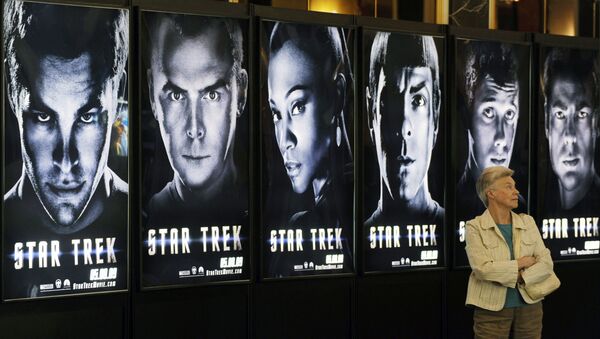And as German political analyst David X. Noack told Sputnik Deutschland, one could draw clear parallels between the series’ setting and the real world back then.
"There were only the good Federation, bad Klingons and bad Romulans. They (the latter two) personified the Russians and the Chinese during the Cold War," he said.
And even though the crew of Enterprise had weapons, they always sought to resolve conflicts through peaceful means. This approach persisted though the series and did not change in Star Trek: The Next Generation as well.
"In The Next Generation there were mostly internal political conflicts during which the Federation — - had to intervene. So essentially the events that transpired in Russia in 1990s during Yeltsin’s presidency were, in a way, reflected in Star Trek," Noack remarked.
In 1991 Star Trek’s creator Gene Roddenberry passed away and the series’ peaceful utopian setting slowly started to change, gradually becoming more similar to the militant reality.
Star Trek: Voyager launched in 1995, during Bill Clinton’s presidency, and violence started to play a more prominent role in the series.
"The Voyager was stranded on the far side of the galaxy and had to hurry to find a way home, struggling to overcome various obstacles. And this struggle was perceived literally – it was a hegemony of violence," the analyst pointed out.
Action and violence gradually started to become the core motif of the series, reaching its peak in the Star Trek movies directed by J. J. Abrams.
"Abrams’ movies are, first and foremost, action movies set in space and have no philosophical undertones or profound meaning," Noack said.
Essentially, since 1960s Star Trek gradually transformed into a typical action series where violence is the only answer. And according to Noack, this transformation serves as a mirror of sorts which reflects the inward and outward development of the United States.



